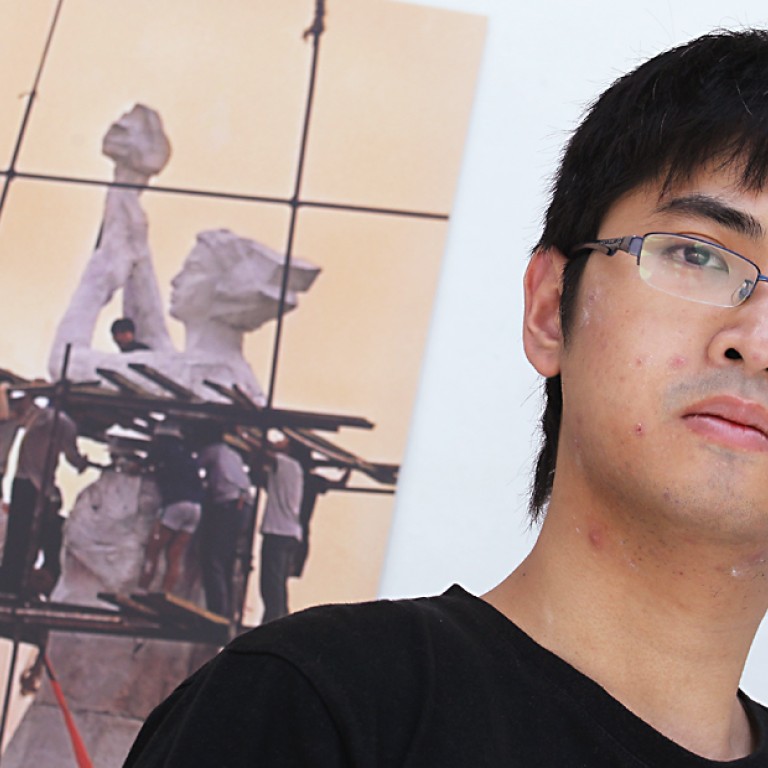
Student leader warns of civil disobedience if 'referendum' ignored
A student leader warned yesterday that at least 1,000 people could "occupy" public buildings or roads in the city centre if officials refuse to give a positive response to Occupy Central's unofficial "referendum" on June 20-22.
A student leader warned yesterday that at least 1,000 people could "occupy" public buildings or roads in the city centre if officials refuse to give a positive response to Occupy Central's unofficial "referendum" on June 20-22.

Occupy Central threatens to mobilise 10,000 people to block roads in the financial district if the government does not deliver on a reform package that will give Hongkongers a genuine choice of chief executive candidates in 2017.
The campaign is planning a citywide poll on June 20-22 for voters to choose from three reform proposals, as well as to endorse whether lawmakers should vote down a reform package that cannot "allow genuine choices by electors".
While Occupy's organisers have said they will not take action before the government unveils its proposal by the end of the year, Chow told the that students are unlikely to wait that long.
"Hongkongers will show their stance on June 22. If the government tramples on public opinion or simply ignores it … [It means] that there is no way for public voices to enter the establishment and push for reforms," Chow said. "Civil disobedience is then the only way to tell the government that they are wrong."
Chow said that starting from June 23, students might "besiege or occupy the Legislative Council, the government headquarters or the central government's liaison office … because these places are iconic and represent different [stances on political reform]". He added that blocking road traffic is also an option when the July 1 rally ends at Chater Road in Central.
He said the League of Social Democrats would likely join the action but student-led Scholarism had reservations as many of its members are still at school.
At a press conference yesterday, Civil Human Rights Front's convenor Johnson Yeung Ching-yin, the organiser of this year's July 1 march, said his group has no plans to undertake acts of civil disobedience after the march.
Yeung said the march will start at Victoria Park at 4pm this year, 90 minutes later than last year, to encourage marchers to stay and join the rally and listen to speeches on Chater Road.
The group has also picked "direct public nomination" as the main theme of this year's march, referring to the pan-democrats' call for the public to put forward chief executive candidates.
On whether the choice may alienate moderate pan-democrats and residents who don't want confrontation with Beijing, Yeung said: "We should never distinguish ourselves between 'radicals' or 'moderates', because we are in the same boat and face the same destiny … if not that many people take to the streets on July 1, Beijing could interpret it as Hongkongers not wanting genuine universal suffrage."


